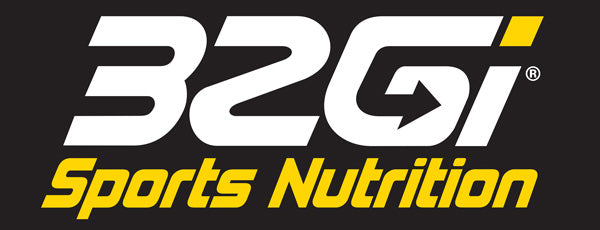Protein is key when it comes to exercise and being an athlete. Muscle recovery is just one of the functions that it performs. But how much should you be eating? How often should you be consuming it? Hear this and more from Mark Wolff on this episode of 32Gi Sports Nutrition.
Transcription:
You listening to 32Gi Sports Nutrition with myself David Katz. Mr. Active and Mark Wolff. Recently in a podcast we talked about the different fuels when exercising, specifically when we look at endurance exercise. Today we’re going to start breaking them down and first of all is the protein factor. So Mark straight away protein, how important is it in an athlete’s diet?
MW: Protein is a very critical factor not just if you’re an endurance athlete. But also if you’re a sedentary person you do need to worry about how much protein you will be taking in.
That would really depend on the kind of lifestyle that you actually lead. Protein is very important for muscle repair, for or muscle resynthesize for cellular tissue repair, etcetera. It’s a very critical component when it comes to dieting.
DK: Well you’ve talked about it being critical post exercise and for repair. How critical is it, I mean there’s all this talk you’ve got to eat within 30 minutes, you’ve got to eat within an hours’ time. When it comes to protein how soon after your exercise should you be consuming it?
Should you consume protein soon after exercising?
MW: It’s a very good question Dave and personally I don’t believe in the window period. If you are an endurance athlete to be quite honest you can take in protein anytime within a number of hours post exercise.
The main reason that I would recommend taking protein in shortly after exercise is not just to start the recovery process but it’s really also to actually stabilise that system.
So generally when you finish a long endurance session, what you will find is there’s a lot of hunger there. There’s a lot of need for calorie consumption and because protein is more of a slower digesting nutrient, what will happen is it will actually keep that hunger at bay. It will actually stabilise and satiate you for a lot longer.
So from that point of view it would be quite important to take it post exercise. But you need to look at obviously taking in other nutrients along with the proteins in order to assist with the recovery process.
DK: Now Mark different athletes are going to require different amounts of protein, how do you recommend that certain athletes consume proteins?
How much protein you should be eating
MW: I think that’s the most important question is how much protein should you be taking in. To be quite honest, protein intake should be measured on a daily basis.
In other words from the time you wake up in the morning to the time that you go to sleep at night. The amount of protein that you take in will ultimately depend on the kind of athlete you are, if you are an athlete.
So looking at endurance athletes, generally I do recommend between 1.4 to 1.7 grams of net protein per kilogram of body weight. That protein should be split over the day.
So if you weighing 60 kilograms for example; your protein intake will be in about the region of a 100 grams net per day. This means you would need to split that 100 grams over the day.
What I generally recommend as well is only consuming about 20 to 25 grams of protein per serving. You should probably split that around three hours apart. The reason I say this is the body is really only capable of absorbing and utilising a certain amount of protein per serving.
If you overload on that amount of protein it’s not going to play much of a benefit for you. So it’s generally better to split it out over the day and that means consuming about 20 to 25 grams of protein per sitting. That will take you to about 4 or 5 servings of protein per day, nicely spread out.
That way you also satiate yourself better, your body will be able to utilise. You’ll feel a lot more stable during the day. If you looking at people that are generally digging a lot deeper and doing a lot more damage to their muscle tissue.
So let’s look at a body builder for example or maybe a cross fitter or somebody who does a lot of weight training. Their protein intake would be a lot higher. There you looking probably anywhere from 1.7 some people take even up to 3 grams of net protein per kilogram of body weight.
There they have to be very careful as to the amount of protein they consume and these guys consume protein to the clock. In actual fact even as far as waking up in the middle of the night to take in the desired amount of protein to ensure that their daily protein intake is required.
We talking about endurance sport now and as far as endurance athletes goes I would generally recommend 1.4 to 1.7 grams per kilogram of body weight. On the lower end if you looking more for maintenance, on the upper end if you generally trying to increase your lean muscle mass and drop your body fat.
25 grams of protein equates to…
DK: Now Mark you talked about 25 grams of protein in a serving can you just equate that for us. What is that a chicken breast, a couple of eggs. Also what would you recommend are the best sources of protein?
MW: Well I think it depends on the size of chicken breast you eating and the size of the eggs you eating. But let’s talk about 25 grams of protein as far as maybe a large egg goes. You probably looking at anywhere between 3 to 4 eggs. If you looking at an egg providing around 6 to 8 grams of protein.
As far a chicken breast goes generally you looking at 1 to 1 and a half chicken breasts per serving. A tin of tuna is around the 20 gram mark, so that will give you a pretty good idea of where the 20 to 25 gram protein mark actually is.
DK: Mark talking about actual amounts of protein, what are the effects on the body if you eat too little and can you also consume too much protein?
Too little vs too much protein
That’s probably one of the best questions that you’ve asked as well Dave. I think that, let’s have a look at eating too little protein. Eating too little protein means that your body is not getting the nutrients that it requires to repair itself properly. Especially if you exercise regularly.
By taking in too little protein you risk yourself actually getting injured or even getting ill because your body is not recovering from one session to the next. Protein is a very critical component in assisting, like I said before, muscle and tissue repair within the body.
One of the biggest mistakes that I’ve seen with athletes is that they do not consume sufficient protein and many times these athletes end up getting injured over and over again. So protein is a critical component.
You mentioned now over eating protein, and that’s another problem that many people have. I get a lot of people saying, “I can eat as much protein as I want.” But that is absolutely not true. Because by eating excessive amounts of protein you actually risk weight gain.
If you eat too much protein what happens is that protein can never be stored it has to be processed by the body. What will happen is there’s an excess amount of protein, how does it get processed?
It gets processed eventually into blood glucose. The body then checks to see if your glycogen stores are topped up. If they are topped up the body will take that glucose and will just store it as fat. So eating excessive protein ultimately raises your blood sugar. If your glycogen stores are topped up ultimately it will convert it to fat so you do risk weight gain.
In South Africa alone, in many countries across the world, we do know that excessive meat eaters generally are big weight gainers, and we see that across the board.
DK: Well from a rugby perspective not something we want to see, them eating less meat. But thanks for joining us, fantastic episode and some great information there from Mark Wolff on 32Gi Sports Nutrition.
If you want anymore information, you want to submit some questions go over to the website 32Gi.com, but from Mark Wolff and myself David Katz, Mr. Active we’ll catch up with you next time.








